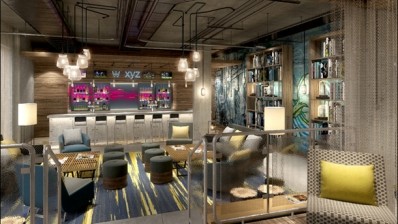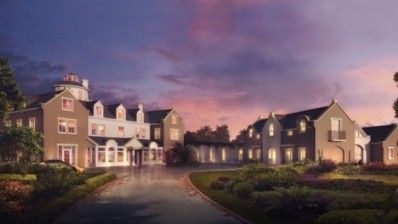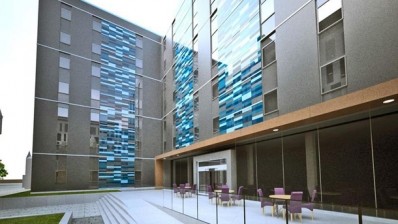Viewpoint
Even Frydenberg on Aloft and mid-scale hotels’ need for change

Tell me more about the Aloft brand.
Aloft is a relatively new brand for us, it was created in 2008, and it is one of the fastest-growing global brands in the world – we’re estimating that by early 2015 we’ll already be at 100 hotels around the world in about 14 countries, which is a very fast expansion.
It’s very much a value and design-led brand with a very strong focus on usable technology, comfort and convenience. The world is going so fast, everybody is connected and on at all times, so for time-conscious customers we’ve created for example check-in and check-out kiosks, refuel (24/7 grab’n’go area in the lobby). One of the newest things we just launched is a mobile check-in, meaning you can go to your room directly with your handheld device.
We felt there was something missing in the market, and that travellers had had enough of waking up in a bed and not knowing what brand or what city they were staying in. We set out to try and create something different: a vibrant mid-market brand created to really shake up the very traditional and pretty boring mid-market category by giving a strong focus on urban design and a lot of energy and guest experiences at an affordable price point.
This brand is not necessarily going head on with other mid-scale brands – we actually believe that this brand is creating its own space in the market.
Why did you pick Liverpool for the second UK Aloft?
We had been looking to open a hotel in North West England for a very long time and we are thrilled it happened in Liverpool. Liverpool and the Aloft brand share a lot of the same energy and creativity, so we really feel it’s a good fit for this brand. The city itself has changed a lot over the last 10 years with a lot of new investment coming in. It’s becoming not only a leisure destination but also a business destination, so we feel like it is spot-on for us.
We are also looking to expand into other locations, potentially Manchester, Leeds, Edinburgh, Glasgow; other large secondary cities in the UK that will fit Aloft but also our other brands.
How does tapping into the mid-scale market fit into Starwood’s strategy, especially at a time when mid-market hotels seem to continuously lose market share?
This is partly why in the past we have not been active players in this market, but we felt that one of the reasons why this segment gets squeezed from the top and the bottom is that there was no defined space and all the products available were not really exciting for their potential guests.
The outcome was to take some of the experiences from some of the full-service brands and bring them into a mid-market brand at the right price point, and do so in a way that is operationally functional and financially responsible. That’s what we believe we were able to do with Aloft.
What do you think the mid-market should let go of, and what should it focus on instead in order to shake up the industry for the better?
The key point here is branding and what it stands for. Historically branding was just a guarantee of reliability. What needs to change is that the hotel brand shouldn’t just be a guarantee, but more something that gives you an experience, even at this market level.
Most hotels have a lot of technology, but in many cases it is technology for technology’s sake – not necessarily what the guest wants and needs. For us, Wi-Fi is available in all guest rooms and public areas free of charge – that is important; self-check-in and check-out – that is important.
The rooms shouldn’t be dark and old like we typically have in this segment, and some of our most mentioned comments on TripAdvisor are our ultra-comfortable platform beds, which should be a given in a hotel, but is not always the case.
A lot of hotel companies still spend money on the mini-bar and relatively heavy furniture and fixtures in the room, as well as food and beverage services in the hotel, meaning restaurants, room service etc.
We believe, especially in urban locations where you have a huge restaurant and bar scene right at your door step, you’re much better off having a grab and go offering that has anything anyone would want (sweet, savoury, hot and cold). We don’t have room service, and the brand does not have a breakfast apart from what you can get from the grab and go.
We don’t have a mini-bar, but we have an empty fridge where you can bring your own drinks or food, and our guests really appreciate that, because most of them previously took out what was in the minibar to put their own products in. It’s really a response to the change in the consumer mindset.
Convenience, beds, showers instead of bathtubs, food – these are some of the key things that need a re-think in all of the mid-market brands.
What’s the feedback been from guests?
There is hardly any comments talking about lack of room service or lack of breakfast, because again, it fits within the current trend – think about Starbucks: you grab a pastry or a muffin and a cup of coffee and off you go, it’s a busy life.

































